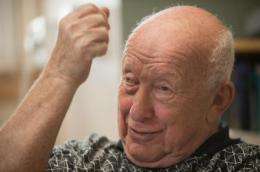Russia fails to grasp democratic ideals: sociologist

The brutally repressive Soviet Union Vladimir Shlapentokh left behind 33 years ago may have opened its borders to the world, but today's Russia has become wracked with greed, corruption and mass emigration that threaten the nation's future. So argues Shlapentokh, a Michigan State University sociologist, in the academic journal Communist and Post-Communist Studies.
"As Russia's plight shows, the assumption that openness and liberalization automatically promote democracy and guarantee it will function turned out to be wrong," Shlapentokh said. "It is misleading to glorify the 'open society' ideal exemplified in the views of many Western thinkers."
Shlapentokh came to the United States in 1979, when he was 52, and immediately joined the faculty at MSU. In the Soviet Union he had been a high-ranking sociology researcher, conducting the first nationwide public opinion surveys. But Shlapentokh said he was discriminated against and not allowed to publish his research because he was Jewish and supported democratic ideals.
The Soviet Union collapsed in 1991. Shlapentokh said the Russia of today is an oil-rich country controlled by corrupt politicians, mafias and wealthy elitists who buy foreign goods and keep their wealth in foreign banks; send their children to Western schools and universities; take vacations abroad; and even seek health care in the Europe and the United States.
"This desire to secure their wealth abroad stems from the uncertainly that comes with living in a politically unstable country," Shlapentokh said. "Openness has had a major impact on Russian society by diminishing the loyalty and respect Russians have toward their country."
Vladimir Putin exemplifies this focus on personal gain. Shlapentokh said the Russian president and his friends have gone so far as to merge Russian companies with foreign corporations for the promise of owning Western stocks. Further, while Putin indulges his personal whims – such as organizing expensive international sporting events – the country suffers from low-quality medical services, inept education, bad housing and many other problems, the paper argues.
There is no doubt, Shlapentokh said, that openness has benefited ordinary Russians, particularly the educated class. He said Russians now have access to consumer goods produced abroad – a long-held dream within the country – as well as foreign media and movies that once were banned. Russians can also travel abroad easily – a privilege previously extended to a small minority cleared by the KGB.
"Openness helps keep alive the idea of democratic ideals, since the experience of the Western countries is well known in Russia," Shlapentokh said. "But at the same time openness has brought some unpredicted and undesirable consequences."
Ironically, open borders can help a regime stifle democracy, he said. Putin cracks down on any opposition threatening his administration, with the Kremlin routinely suggesting protestors leave or face harassment or even imprisonment, he said.
Nearly 1.3 million citizens have left Russia during the past three years.
Ultimately, the many problems facing Russia are collectively eroding the cultural beliefs and institutions that make a country united and strong, Shlapentokh said.
"This has put Russia in a weak position for resisting terrorism or potential attacks from her neighbors," he said. "In short, Russia is not in a position to be a major global force despite its nuclear arsenal, the size of the country, its natural resources and its position on the U.N. Security Council."
Shlapentokh believes Russia's powerful elitists need to devote themselves to democratic ideals such as freedom and not be absorbed by personal wealth.
"Russia needs to follow John F. Kennedy's advice," he said. "Ask not for what your country can do for you – as what you can do for your country."
Provided by Michigan State University

















